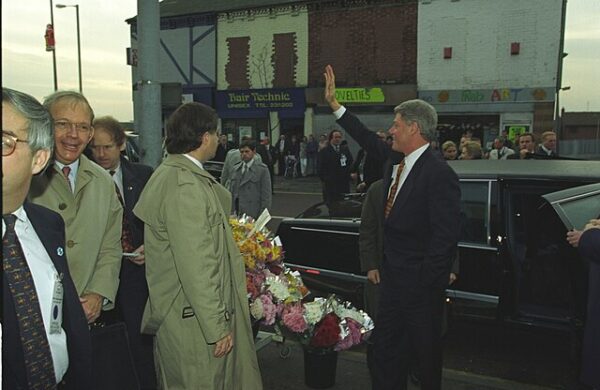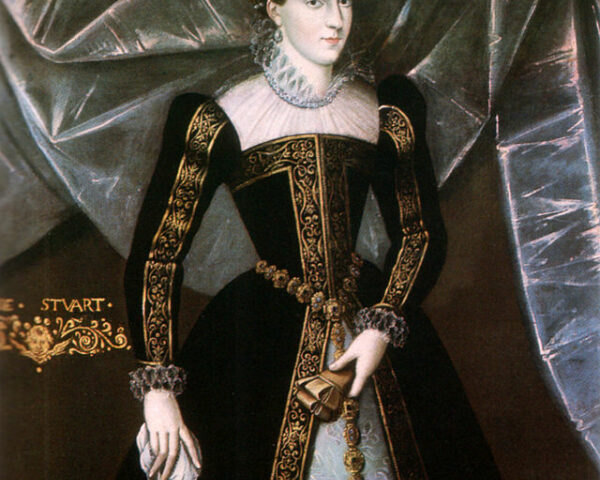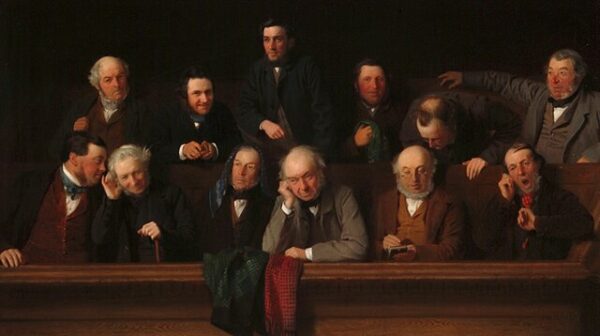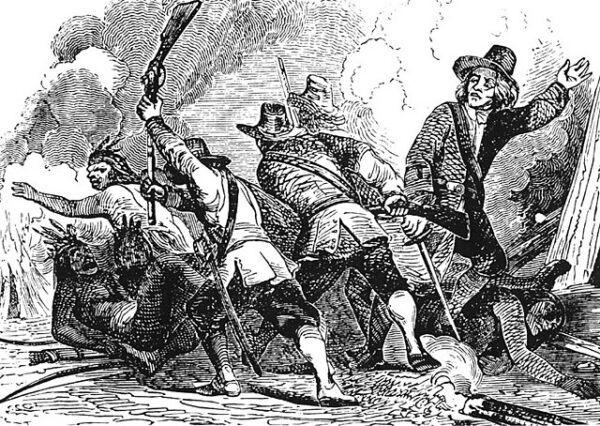On November 30, 1995, Bill Clinton delivered a historic address outside Belfast City Hall, marking a pivotal moment in Northern Ireland’s peace process. Speaking to a massive crowd, Clinton expressed strong support for efforts to end decades of sectarian violence and urged all parties to seize the opportunity to build a peaceful future. His visit underscored the importance of unity, resilience, and the pursuit of change.
Clinton’s appearance came at a crucial point for Northern Ireland. The region had long suffered under the weight of “The Troubles,” a period of intense conflict that claimed thousands of lives. Although the 1994 ceasefires by the Irish Republican Army (IRA) and loyalist paramilitaries brought hope, the peace process was still precarious. Clinton’s presence aimed to bolster these efforts and encourage continued progress toward a resolution.
Addressing thousands of citizens braving the cold evening, Clinton commended their perseverance through years of turmoil. He highlighted their unique chance to create a future free from division and violence, urging them to reject hatred. His words struck a chord with the crowd, reflecting both their struggles and aspirations.
Clinton acknowledged the strides made since the ceasefires but emphasized the challenges ahead. He urged leaders from all sides to stay the course, warning that the toughest work was yet to come. The rewards, however, were immense: a peaceful and hopeful future for generations to come.
One of the speech’s most memorable moments was Clinton’s description of IRA fighters and other opponents of peace as “yesterday’s men.” This pointed remark signaled that the time for violence and division had passed, and that the people of Northern Ireland were moving toward a better, more unified future. While many applauded the statement, it also drew criticism from hardline factions who felt excluded or alienated. Nevertheless, Clinton’s resolve demonstrated the U.S. administration’s firm stance on supporting the peace process.
This visit was groundbreaking, as Clinton became the first sitting American president to travel to Northern Ireland. During his stay, he met with key political figures, including John Hume of the SDLP and David Trimble of the UUP. Both were instrumental in advancing discussions that would culminate in the 1998 Good Friday Agreement. Clinton’s outreach extended beyond political leaders; his interactions with everyday citizens, such as lighting a Christmas tree in Londonderry (Derry), showcased his deep connection with the local community.
The United States played a vital role in the peace process, with Clinton’s administration actively facilitating dialogue and compromise. Special envoy George Mitchell was a key figure in guiding negotiations. Clinton’s Belfast speech reinforced American commitment to the region and served as both a symbolic and practical gesture of support.
Clinton’s words became a defining moment in Northern Ireland’s move toward peace. Though significant challenges remained, his visit amplified the belief that an end to The Troubles was achievable. The momentum generated by his historic appearance contributed to the signing of the Good Friday Agreement, a landmark accord that officially ended decades of conflict.
For the people of Northern Ireland, Clinton’s visit remains a powerful symbol of hope and transformation.






